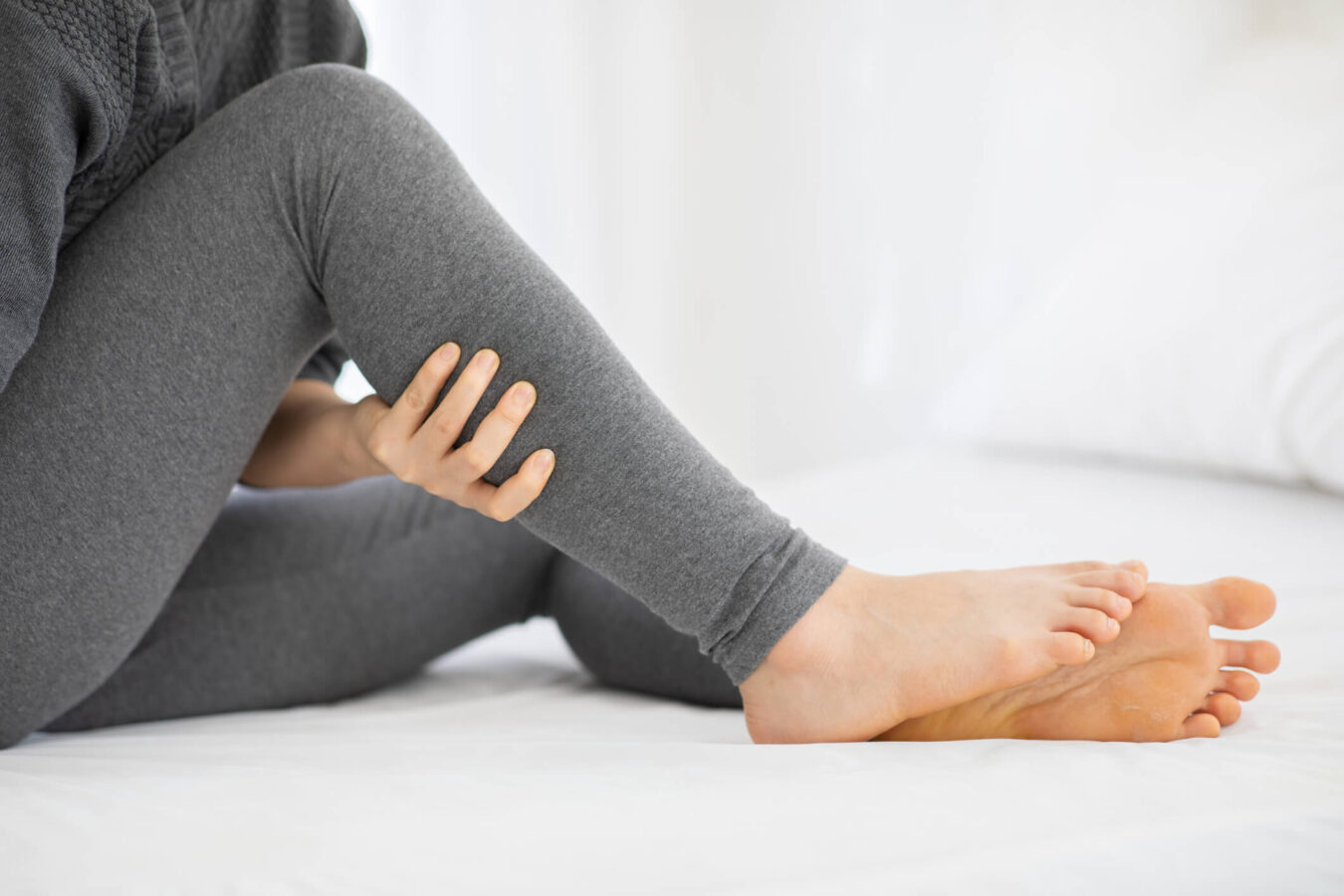
Medically reviewed by Misty Seidenburg
Tense and tight muscles after intense exercise or periods of inactivity are common. But they can also be a sign of an illness or injury that requires medical attention. Here, we’ll explore more common causes of muscle stiffness and different treatments available to release chronically tight muscles.
Muscle stiffness is when muscles feel overly tight and difficult to move. Stiffness can be accompanied by muscle fatigue, twitching, cramps, or spasms. Muscle tension is fairly common with one in four people experiencing chronic muscle stiffness, and most people experiencing acute muscle tightness at some point in their life.
Activities and conditions that may cause muscle stiffness include:
If the cause of your muscle stiffness is not immediately clear, be sure to see your healthcare provider for an accurate diagnosis. They will perform a physical exam, review your health history, and possibly order imaging tests to determine why you’re having discomfort.
It may be possible to relieve muscle stiffness from overexertion or posture problems with a few simple, self-care remedies. Massaging the area several times per day with your hands or a massage gun can help release tense muscles. Stretching throughout the day can also be beneficial.
Because heat brings more blood to the area where it is applied to relieve tight muscles and can turn on the parasympathetic nervous system- the ‘rest and digest’ part of the nervous system, a warm compress, heating bad, or hot bath may feel good where you’re feeling stiff.
Some research also points to the benefits of foam rolling when used in conjunction with dynamic stretching before a workout to reduce muscle stiffness and improve range of motion. Individuals who experience muscle tension after intense exercise might consider adding this to their warm-up regimen.
Over-the counter topical and oral pain relievers can also offer relief from muscle pain and tightness, but should generally be used on a temporary basis.
While muscle stiffness often improves with conservative treatments, it’s important to remember that muscle tension can have a more serious underlying cause. See a doctor if stiffness doesn’t improve or lasts longer than a week. If the pain prevents you from moving, gets worse with activity, or feel intolerable, seek timely medical help. Muscle stiffness accompanied by fever, swelling, or difficult breathing may also be cause for concern.
Physical therapy for muscle stiffness targets the underlying causes of pain and tension, from injuries and posture problems, to underuse and movement disorders. After an initial evaluation to assess how and why you hurt, your physical therapist creates a custom treatment plan to relax tense muscles and promote healthy function and better range of motion in areas of body stiffness.
Muscle tension physical therapy can include the following treatments and techniques:
These are just a few of the tools physical therapists use to help patients with chronic muscle tension “loosen up.” Physical therapy is ideal for patients recovering from an injury or surgery, and for athletes and other active individuals who want to perform at their very best and prevent injuries.
It is also beneficial for patients with chronic muscle pain and tension from their job or the way they stand or sleep. Physical therapy counteracts the negative effects of technology use: carpal tunnel pain, “text neck,” back pain, and headaches.
For a treatment plan designed for your unique symptoms and goals, find a physical therapy clinic near you.
External Sources: